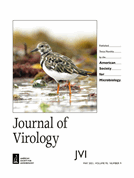AI Summary
The text discusses the impact of the Omicron variant of COVID-19 and the need for broad-spectrum vaccines to protect against different variants. It mentions that the Omicron variant has mutations that evade immunity and vaccines have shown reduced effectiveness against it. However, T-cell responses to various variants are still preserved in most individuals. There is a need for vaccines that provide broad-spectrum immunity.
INTRODUCTIONCoronavirus disease 2019 (COVID-19), caused by severe acute respiratory syndrome coronavirus 2 (SARS-CoV-2), has been a global pandemic since the beginning of 2020 and has severely affected public health. The rapid evolution of SARS-CoV-2 gave rise to numerous variants, and some have been designated as variants of concern/interest (VOC/I) by the World Health Organization. As the dominant strain, the Omicron variant contains over 30 mutations in spike (S) protein that leads to immune evasion and increased transmissibility (1). First-generation COVID-19 vaccines, derived from the spike or RBD of SARS-CoV-2 ancestral strain, have shown waning effectiveness against VOCs, especially Omicron (2).Both humoral and cellular immune responses are essential in controlling virus infections. Neutralizing antibodies (NAbs) are regarded as the major contributor to host protection against SARS-CoV-2 (3), while SARS-CoV-2-specific T-cell responses play roles in reducing disease acquisition and severity (4). Even when NAbs and memory B cell responses decreased significantly, T-cell responses to diverse variants from Alpha to Omicron were still preserved in most convalescents and vaccines (5). These observations offer a compelling explanation for the effectiveness of first-generation COVID-19 vaccines in protecting against severe disease and death under the condition of impaired or even absent neutralization capacity against Omicron. Nevertheless, ~20% of individuals have a >50% reduction in T-cell reactivity to Omicron spike (6). Given the uncertainty of further evolution, broad-spectrum vaccines, which are capable of providing broad-spectrum humoral and cellular immunity, are urgently required to protect against circulating and emerging variants.Currently, available vaccines offer limited protection against breakthrough

